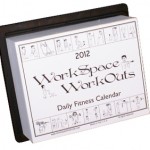August 29, 2012 – 3:14 pm

 Payment reform systems offer a way to achieve greater reporting accuracy, promote quality care and minimize fraud. To improve quality of care and create an accurate payment system built upon providing medically necessary physical therapy services, the APTA has proposed to reform payment for outpatient physical therapy services by transitioning from the current fee-for-service, procedural-based payment system to a per session payment system. We have two experts joining us in this week’s podcast to discuss Alternative Payment Systems. Connie Ziccarelli, Principal & Chief Operations Officer and Jodi Woodward, Director of Medical Billing at Rehab Management Solutions share insight on alternative payment systems.
Payment reform systems offer a way to achieve greater reporting accuracy, promote quality care and minimize fraud. To improve quality of care and create an accurate payment system built upon providing medically necessary physical therapy services, the APTA has proposed to reform payment for outpatient physical therapy services by transitioning from the current fee-for-service, procedural-based payment system to a per session payment system. We have two experts joining us in this week’s podcast to discuss Alternative Payment Systems. Connie Ziccarelli, Principal & Chief Operations Officer and Jodi Woodward, Director of Medical Billing at Rehab Management Solutions share insight on alternative payment systems. The new payment system is quite different than the payment system in place today. Currently, services are are coded with CPT codes. The Alternative Payment System looks to use just 12 codes in total for physical therapy services. Although, learning the new system may be a challenge at first, the new alternative payment system should over time eliminate code choice, edits and bundling. Discover more about Alternative Payment Systems and how you can best prepare for them by listening to the full podcast now.

August 22, 2012 – 4:22 pm
 Declining reimbursements and increased competition from hospital and doctor-owned physical therapy clinics often make it difficult for private practice physical therapy clinics to remain profitable. Despite the challenges, Blaine Stimac, PT, owner and CEO of Professional Therapy Associates, has a positive outlook on the future. He shares some of the things his private practice is doing to stay up and running in a challenging economic climate.
Declining reimbursements and increased competition from hospital and doctor-owned physical therapy clinics often make it difficult for private practice physical therapy clinics to remain profitable. Despite the challenges, Blaine Stimac, PT, owner and CEO of Professional Therapy Associates, has a positive outlook on the future. He shares some of the things his private practice is doing to stay up and running in a challenging economic climate.
Stimac believes the skill set required to run a private practice is totally different today than it was 10 years ago and has found the secret to running his four clinics in Montana has been to stop doing things the old way. They now look at the therapists they hire as a partner. The value that each therapist brings into the company can vary significantly. They want productive and efficient physical therapists that deliver outstanding care and do a good job at bringing more business to the clinic.
Despite the economic climate, they have grown their clinic by 30 to 40 percent in the last two years. The clinic has really embraced change and Stimac feels this has helped them continue to grow. He believes if a physical therapist puts his full skill set on the table, no one can compete against that. To grow their business, Professional Therapy Associates do not rely just on doctors for referrals. They are marketing towards consumer in a number of ways. Discover more tips for growing your private practice physical therapy clinic by listening to the full podcast now.

August 15, 2012 – 5:33 pm
 Sitting too much can be hazardous to your health. In fact, a study featured in the March 26, 2012 issue of Archives of Internal Medicine found people who sat for over 11 hours or more per day were 40 percent more likely to die from any cause. To help individuals with jobs that require sitting behind a desk for much of the day, physical therapist and owner of Naperville Physical Therapy, Mary Rachford, created a desktop calendar. She recently discussed her Workspace Workouts Calendar with PT Talker.
Sitting too much can be hazardous to your health. In fact, a study featured in the March 26, 2012 issue of Archives of Internal Medicine found people who sat for over 11 hours or more per day were 40 percent more likely to die from any cause. To help individuals with jobs that require sitting behind a desk for much of the day, physical therapist and owner of Naperville Physical Therapy, Mary Rachford, created a desktop calendar. She recently discussed her Workspace Workouts Calendar with PT Talker.
The desktop calendar features three daily exercises for every work day and each exercise is designed for an office setting and requires no special equipment. Health tips are also included for the weekend. Not only have patients found the calendar useful, but the physical therapy have found them to be good marketing tools since the calendars can be customized so the name of the clinic is on the cover of the calendar and each page of the calendar. Rachford states that the calendar has served as one of the best marketing tools they’ve ever used. Learn more about how the calendar has also served as a way to gain referrals by listening to the full podcast now.

August 10, 2012 – 10:10 am
 The less weight runners carry, the faster they can run. To help runners enhance their performance, a Duluth, Minnesota physical therapist, Malcolm Macaulay developed a piece of equipment as an aid to treadmill exercise. He joins PT Talker to discuss his invention.
The less weight runners carry, the faster they can run. To help runners enhance their performance, a Duluth, Minnesota physical therapist, Malcolm Macaulay developed a piece of equipment as an aid to treadmill exercise. He joins PT Talker to discuss his invention.
The LightSpeed Body Weight Support Systems takes approximately 15 percent of a runner’s body weight off the ground offering runners a speeder workout with less impact. The system utilizes bungee cords attached by Velcro to compression shorts and clipped to the suspension system that works with any treadmill. Advantages of the system include the comfort of the system, convenience of working over traditional workout clothes and ease of use. The system also gives physical therapists an additional opportunity that allows patients to continue their training after their physical therapy sessions are done.
To learn more about how he brought his idea to life to enhance the performance of his patients, listen to the full podcast now.


 Payment reform systems offer a way to achieve greater reporting accuracy, promote quality care and minimize fraud. To improve quality of care and create an accurate payment system built upon providing medically necessary physical therapy services, the APTA has proposed to reform payment for outpatient physical therapy services by transitioning from the current fee-for-service, procedural-based payment system to a per session payment system. We have two experts joining us in this week’s podcast to discuss Alternative Payment Systems. Connie Ziccarelli, Principal & Chief Operations Officer and Jodi Woodward, Director of Medical Billing at Rehab Management Solutions share insight on alternative payment systems.
Payment reform systems offer a way to achieve greater reporting accuracy, promote quality care and minimize fraud. To improve quality of care and create an accurate payment system built upon providing medically necessary physical therapy services, the APTA has proposed to reform payment for outpatient physical therapy services by transitioning from the current fee-for-service, procedural-based payment system to a per session payment system. We have two experts joining us in this week’s podcast to discuss Alternative Payment Systems. Connie Ziccarelli, Principal & Chief Operations Officer and Jodi Woodward, Director of Medical Billing at Rehab Management Solutions share insight on alternative payment systems. 




